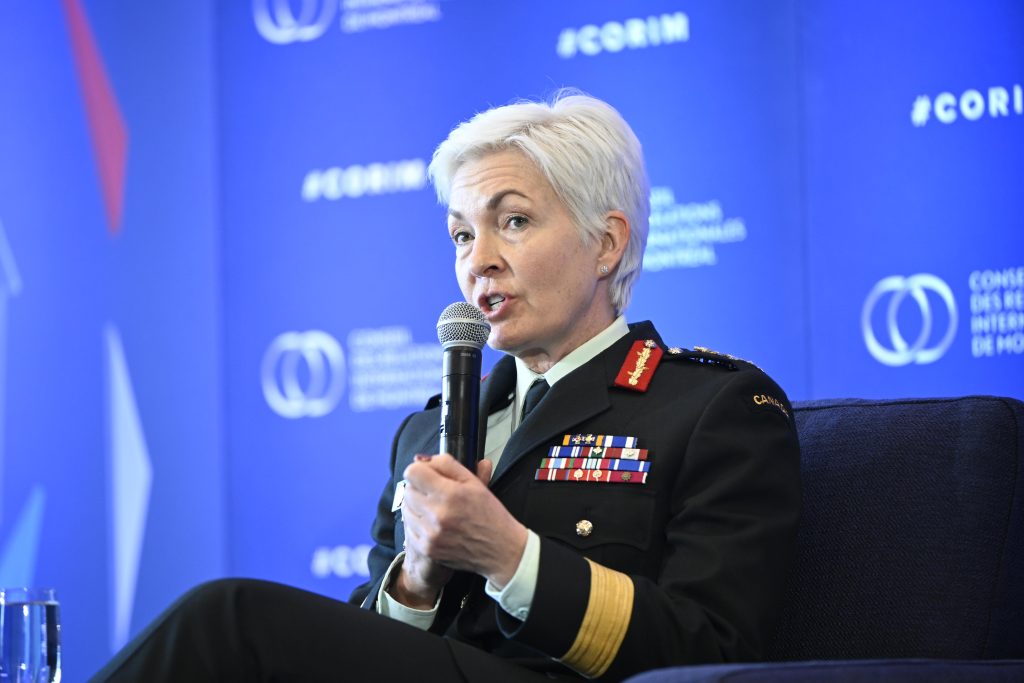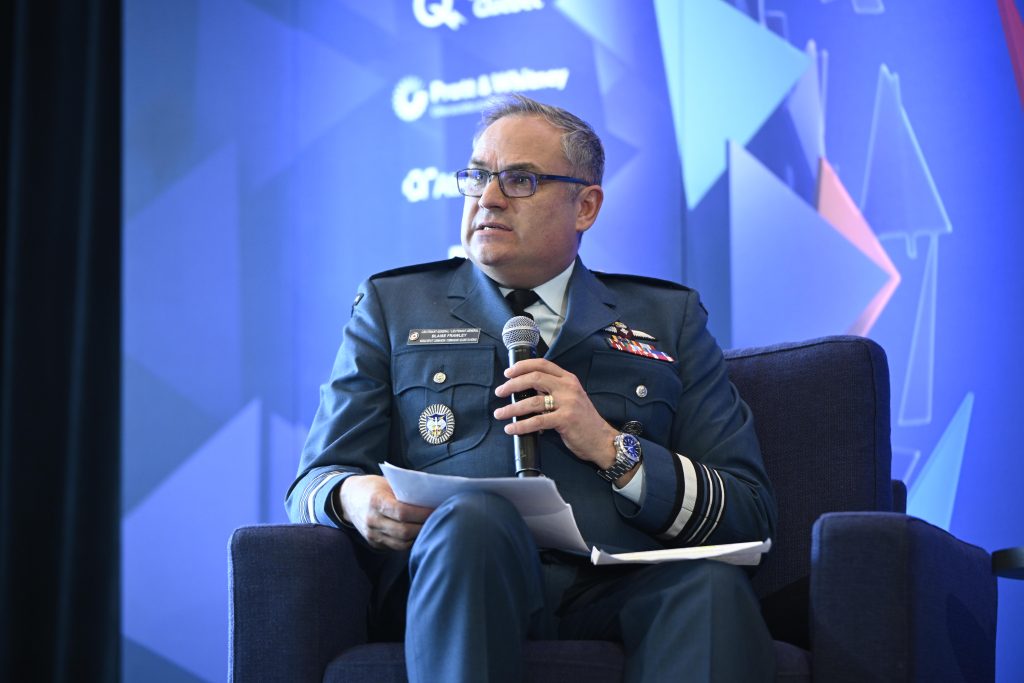“Time is crucial now” warns Canada’s defence chief of Arctic threats

In response to a rapidly changing geopolitical landscape, Canada’s Chief of the Defence Staff emphasized the urgent need to strengthen the country’s Arctic defence, improve military capabilities, and modernize technology during a panel discussion in front of a Montreal audience on Tuesday.
“We have processes and structures that are based on a state of peace, where we have plenty of time to develop files and contracts, and we have a lot of time ahead of us to implement the new capabilities we need,” General Jennie Carignan remarked during a Montreal Council on Foreign Relations conference, Continental and Arctic Defence: Responding to Today’s Global Challenges.
“The reality today is completely different.”
Carignan noted that Canada’s Arctic was historically protected by its remote geography. However, as climate change transforms the region’s environment, it is becoming more accessible. At the same time, shifting global dynamics—especially with the growing influence of Russia and China—are raising new security concerns, she said.
Outdated infrastructure and growing threats
NORAD (North American Aerospace Defense Command) has played a central role in Canada’s defence strategy since it was formed in 1958, originally to protect North America from Soviet aerial threats.
Today, NORAD’s mandate includes both aerospace and maritime warning, with an emphasis on detecting and responding to emerging threats in the Arctic. But Canada’s radar infrastructure, like the North Warning System, is increasingly outdated. Built between 1986 and 1992, these systems are struggling to detect newer missile technologies, leaving Canada vulnerable.

Experts have long raised the alarm about the need to modernize NORAD—not just by upgrading equipment, but by integrating cutting-edge technologies like artificial intelligence, and have stressed how far Canada is behind its adversaries.
In recent years, the Canadian government has announced boosts to defence spending as well as plans to modernize NORAD, but concerns continue to be raised about the actual timeline and how quickly the new technologies will actually be put in place.
Moscow and Beijing’s Arctic focus
The situation is further complicated by Russia and China’s growing presence in the Arctic and rapid development of weapons technology.
Russia, in particular, has advanced its capabilities with long-range cruise missiles and hypersonic weapons that can completely evade detection by current radar systems in the North American Arctic.
“Time is crucial now,” Carignan said.
“When we look at the present threats, all that’s missing right now is the intent to use these weapons. We must quickly make these transformations to have a defence that has a deterrent effect on our enemies, because if we appear vulnerable right now, the door is open for engagement.”

Lieutenant-General Blaise Frawley, Deputy Commander, North American Aerospace Defense Command (NORAD) said increasing partnership between Moscow and Beijing is rapidly transforming the security landscape in the Arctic.
“Before, it was two separate threats, but now we see more and more maritime and air cooperation between them and we’re concerned about how that is going to develop,” Frawley said.
Other countries’ responses
As Russia and China push further into the Arctic, the Ukraine war continues, other Arctic countries are stepping up their efforts to address the growing security challenges.
Scandinavian nation have responded quickly, further solidified by the recent NATO membership of Sweden and Finland.
Recent military exercises have practised moving military equipment across the Arctic, from Norway through Sweden to Finland, to demonstrate their ability to rapidly mobilize against threats.

While Canada hasn’t yet rolled out similar large-scale initiatives in the North American Arctic, General Carignan pointed out that the Arctic environments in Canada and Scandinavia are extremely different, meaning Canada must tailor its response to its geographical reality.
“The Arctic in the Scandinavian countries is fundamentally different than the environment we have in Canada in the Arctic, so we have to take that into account,” she said talking to reporters after the event.
Canada’s recurring Operation Nanook—an annual exercise in the country’s Far North—demonstrates Canada’s ability to operate in the Arctic, Carignan said.
“We have a series of exercises that we conduct in the Arctic—Operation Nanook—where we have an overlay of personnel deployed pretty much consistently throughout the year, and we are using a Joint Task Force North operating out of Yellowknife to coordinate all of this,” she said.
“We also have included different allies and partners as part of Operation Nanook, so it’s broader than strictly Canadian, offering various deterrent postures but also exercising in the North and all the various capacities.”
Related stories from around the North:
Canada: Alberta Premier Smith pitching joint Canada-U.S. Norad military base in Arctic, The Canadian Press
Finland: US in Greenland could improve Arctic security, Finnish defence minister suggests, Yle News
Denmark: Faced with Trump’s Greenland threats, Denmark seeks support from EU partners, The Associated Press
Greenland: Greenlanders overwhelmingly oppose becoming part of the United States, poll shows, Reuters
Norway: Norway’s Finnmark brigade to boost Arctic border defence, reevaluate training limits, The Independent Barents Observer
Russia: New radars sharpen Russian air defence over northern Finland, Norway, The Independent Barents Observer
Sweden: Swedish PM on Trump comments: Only Denmark and Greenland decide, Radio Sweden
United States: Trump again calls to buy Greenland after eyeing Canada and the Panama Canal, Eye on the Arctic



